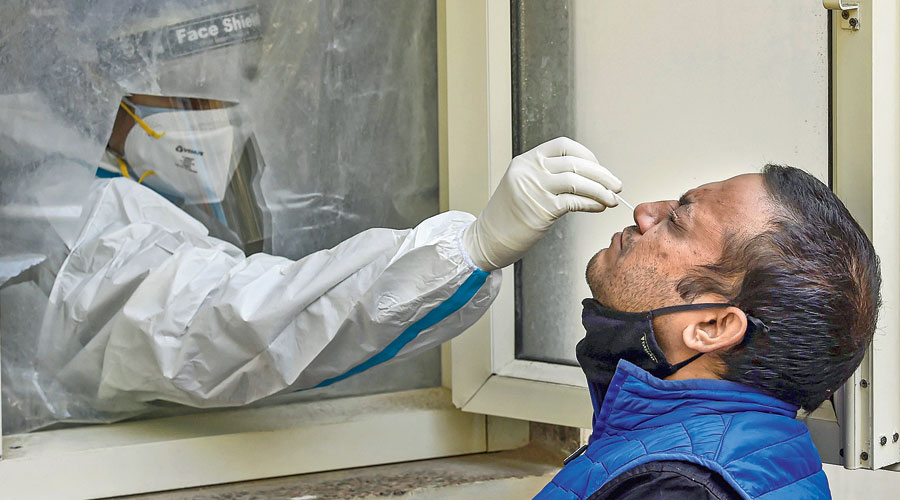Three worrisome coronavirus variants first discovered in the UK, South Africa and Brazil appear to be converging through genetic mutations towards a “supervariant” that researchers say could complicate the world’s fight against the pandemic.
International research teams have detected signals that the three variants are continuing to acquire mutations and drifting towards newer versions of the virus that might be even more difficult to control than the currently circulating variants.
The scientists said their findings underline the urgency to accelerate global efforts to stop the spread of the virus and expedite vaccine rollouts before the possible emergence of supervariants capable of escaping current treatment and existing vaccine strategies.
But they have asserted that the implications of the emerging mutations on the disease for now remain unclear.
“There is very little evidence that they make clinical disease worse,” said Sergei Pond, professor of biology at Temple University in the US, a team member.
“Our hypothesis is that the driving force is for the virus to become less susceptible to existing immune responses. But this is an evolutionary cat-and-mouse game. The immune responses will not remain static and will catch up with viral mutations,” Pond told The Telegraph.
The scientists have found that all the three variants are making similar evolutionary moves.
“They’re likely headed towards changing into a version that shares the best features of each of the three variants,” Darren Martin, associate professor at the University of Cape Town, South Africa, and first author of the study told The Telegraph.
The three variants of concern emerged in the last three months of 2020 — B.1.1.7 in the UK, B.1.351 in South Africa and P1 in Brazil — and have since spread to multiple countries, including India. They possess mutations that allow them to spread faster than earlier variants and to evade antibodies.
The scientists analysed mutations through 2020 and detected a “sudden shift” in the types of mutations after October.
While earlier, mutations looked like random noise with unclear biological importance, mutations after October display discernible patterns pointing towards convergence.
“The UK variant is becoming more like the South African variant, the South African variant is becoming more like the UK variant,” said Martin, the lead author of a paper that is yet to be peer-reviewed, but has been posted on medRxiv, an online preprint server.
The researchers have used computer-based forecasts to speculate that the current convergence patterns might culminate into a so-called supervariant and new variants that emerge over the coming year might possess subsets of mutations this supervariant is forecasted to possess.
“We’re not predicting that a supervariant will emerge —there is no way of telling for sure, but descendants of current variants of concern that are more transmissible and evade immunity are probable,” Martin said.
The impacts of such variants on the pandemic remain unknown, but each variant has shown troubling features. Both the UK and South African variants spread faster than earlier versions of the virus and both have been shown to evade some immune responses.
The Brazilian variant has been linked to a second wave in a region of Brazil where a second wave was considered unlikely because the first wave had already infected 76 per cent of the region’s population, a fraction considered large enough to usher in herd immunity.
An independent study led by virologist David Ho at Columbia University in the US has generated evidence to suggest that SARS-CoV-2, the virus that causes Covid-19, is mutating in a direction that could help it evade current vaccines.
“The recent emergence of B.1.1.7, B.1.351 and P.1 marks the beginning of SARS-CoV-2 antigenic drift,” Ho and his colleagues wrote in a paper published in the journal Nature on Monday.
Antigenic drift refers to minor changes in viral genes that occur continuously as the virus replicates and is a key reason why people get influenza more than once.
Ho and his team have cautioned that if the rampant spread of the coronavirus continues and more critical mutations accumulate, “we may be condemned to chasing the evolving SARS-CoV-2 continually, as we have long done for influenza virus.”
“Such considerations require that we stop virus transmission as quickly as is feasible, by redoubling our mitigation measures and by expediting vaccine rollout,” the researchers said.











